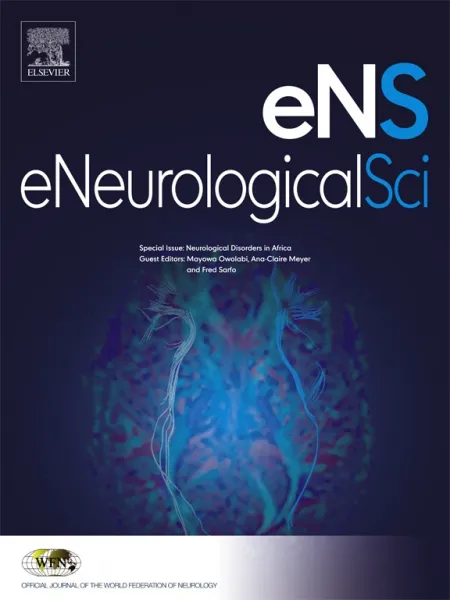|

-
By Prof. Massimo Leone
Sub-Saharan Africa has 1.3 billion inhabitants. The estimated number of PLWE in the region exceeds 20 million, but there is only one neurologist for every 2 million people.
The majority of PLWE in Sub-Saharan Africa are managed in primary care facilities by nonphysician clinicians (NPCs) whose education on the disease is insufficient. More than 75% of PLWE have little or no access to treatment. The Sub-Saharan African population is expected to double by 2050, as is the number of PLWE.
-
By Ndonji Chiwaya
Educators in Zambia decided to challenge the status quo with a fresh approach: the flipped classroom model. No more marathon lectures with passive note-taking. Instead, students viewed neurology content before class via prerecorded online video lectures. They then spent valuable class time participating in interactive, small-group discussions focused on real clinical cases...
-
By Dr. Aida Suárez-Gonzalez, Prof. Morris Freedman, Dr. Thomas Bak, Prof. Adesola Ogunniyi, Prof. Gladys E. Maestre, and Prof. Raj Kalaria
Dementia and Brain Aging in Low- and Middle-Income Countries, a symposium held Dec. 3-6, 2024, in Nairobi, Kenya, marked another milestone in global efforts to advance equitable brain health. Hosted at the Safari Park Hotel, the event brought together more than 200 delegates from Africa and the world, representing a wide spectrum of researchers, clinicians, and policymakers. The setting underscored the meeting's purpose: to center the voices, knowledge, and experiences of those working within low- and middle-income countries (LMICs), where the burden of dementia is growing rapidly...
-
By Dr. Chandrashekhar Meshram
The Orange City Cultural Foundation (OCCF), in collaboration with the P.M. Shah Foundation, Nagpur Municipal Corporation, Rashtrasant Tukadoji Maharaj Nagpur University, CineMontage, and Saptak Napur, organized the Orange City Aarogya Film Festival on March 29-30, 2025, in Nagpur, India.
This initiative, a brainchild of Dr. Chandrashekhar Meshram, president of the OCCF and trustee of the World Federation of Neurology (WFN), was the first health-focused film festival in central India. The idea was to create health awareness in the general public and inspire people to do good work on health-related issues...
Open latest issue
|

-
Qi CZ, Lin Y, Li Y, Vu T, Gelinas D, Lizarraga AA, Blein C, De Ruyck F, Shi L.
Journal of the Neurological Sciences. 2026 Jan 7:125716.
A large longitudinal cohort study examines the long-term risks associated with corticosteroid use in patients with myasthenia gravis (MG), drawing on over two decades of data from the U.S. Veterans Affairs Health Care Network. The study compares patients with MG to matched non-MG controls to assess how corticosteroid exposure influences the development of common comorbidities over time.
-
Mameli A, Indovina L, Cocciolillo F, Serra A, Marongiu F, Barcellona D.
Journal of the Neurological Sciences. 2026 Jan 9:125750.
A new study highlights the often-overlooked burden of cerebral microvascular involvement in primary antiphospholipid syndrome (PAPS), even in patients without overt neurological events. Using Tc-99m ECD SPECT imaging, the researchers identified consistent cortical perfusion abnormalities that were not detected by conventional MRI, suggesting subclinical brain involvement.
-
Kaji R, Nishi Y, Ishida T, Takase T, Ueda T, Maeda T, Izumi Y, Methylcobalamin 762 study group
Journal of the Neurological Sciences. 2025 Dec 18:125701.
To develop combined therapies for amyotrophic lateral sclerosis (ALS), we investigated the long-term safety of ultra-high-dose methylcobalamin (50-mg intramuscular, twice weekly) in patients with advanced ALS.
As an open-label extension of a multicenter, randomized, double-blind, placebo-controlled phase 2/3 study, patients were enrolled and administered methylcobalamin 50 mg intramuscularly twice weekly for up to 52 weeks.
-
Tandale BV, Vishwanathan R, Lavania M, Kumar N
Journal of the Neurological Sciences. 2025 Dec 17:125696.
To develop combined therapies for amyotrophic lateral sclerosis (ALS), we investigated the long-term safety of ultra-high-dose methylcobalamin (50-mg intramuscular, twice weekly) in patients with advanced ALS.
As an open-label extension of a multicenter, randomized, double-blind, placebo-controlled phase 2/3 study, patients were enrolled and administered methylcobalamin 50 mg intramuscularly twice weekly for up to 52 weeks.
Open latest issue
|

OPEN ACCESS JOURNAL
-
Kaindl L, Hotz JF, Ferrari J.
eNeurologicalSci. 2025 Jun 1;39:100561.
Stroke represents a major public health problem, ranking as a leading cause of death and long-term disability worldwide. The goal of prevention strategies is to avoid the occurrence of stroke by educating both healthcare professionals and patients about the reduction of risk factors.
Despite increasing improvements in acute revascularization therapies, preventive measures remain more effective in decreasing the burden of stroke, as evidenced by the fact that over 75 % of strokes are first events. This paper attempts to provide a comprehensive approach by outlining risk factors and new therapeutic approaches. Understanding these is essential for healthcare providers and the general public to develop effective prevention strategies and ultimately reduce the overall incidence of stroke.
-
Aka KC, Nancy ED, Muriel AT, Cedric AP, Delors OF, Arlette AD, David B, Axel TB, Constance YE, Christian T, Evelyne AD.
eNeurologicalSci. 2025 Apr 15:100566
This was a prospective cross-sectional study carried out during the 2022–2023 academic year at the Abidjan UFR of Medical Sciences. The study population consisted of all students in years 3ème to 6ème and hospital interns. The Schon questionnaire, transcribed using google form software, was sent to students using the "whatsapp" social network.
-
Grisold W, Lewis SL.
eNeurologicalSci. 2025 Jan 5;38:100548
Congresses remain the main source of scientific meetings, combining science and education as well as personal interactions. Congresses are slowly returning to in-person meetings; however, some organizations, such as the World Federation of Neurology (WFN), adhere to the hybrid concept, both virtual and in-person.
To do this, we host the WFN World Congresses of Neurology (WCN), which reports the latest achievements and will remain hybrid (https://wcn-neurology.com); however, we think that two years between congresses is too long. For this reason, we introduced the World Federation of Neurology Digital Neurology Update (WNU)
-
Crivelli L, Winkler A, Keller G, Beretta S, Calandri I, De Groote W, Fornari A, Frontera J, Kivipelto M, Lopez-Rocha AS, Mangialasche F.
eNeurologicalSci. 2024 Nov 21:100539
This systematic review analyzes the impact of COVID-19 on dementia patients' functional, cognitive, neuropsychiatric, and health related outcomes. It hypothesizes that dementia patients infected with SARS-CoV-2experience more pronounced deterioration compared to those who are uninfected.
Among 198 studies reviewed, only three met the criteria. Chen et al. (2023) identified higher mortality in SARS-CoV-2-infected dementia patients, while Merla et al. (2023) observed faster cognitive decline in infected individuals with increased hospital admissions. Additionally, Cascini et al. (2022) reported an increased risk of infection and significantly elevated mortality in dementia patients, highlighting comorbidities and antipsychotic medication use as key risk factors.
-
Rocca WA.
eNeurologicalSci. 2024 Dec 3:100544.
The practice of modern neurology is based on research evidence. Research evidence is constructed by teams of investigators throughout the world, from Tokyo to Buenos Aires, from Sidney to Vancouver, from New York to Rome. These investigators use research methods and tools to design and conduct their studies. Neuroepidemiology is the science used to conduct clinical studies and population studies and to construct medical research evidence. Thus, neuroepidemiology is the architecture of medical research evidence. In particular, epidemiologic methods are used to describe the frequency and distribution of neurological diseases in human populations, to discover risk and protective factors, to study outcomes of diseases, and to measure the response to treatments.
Open latest issue
|